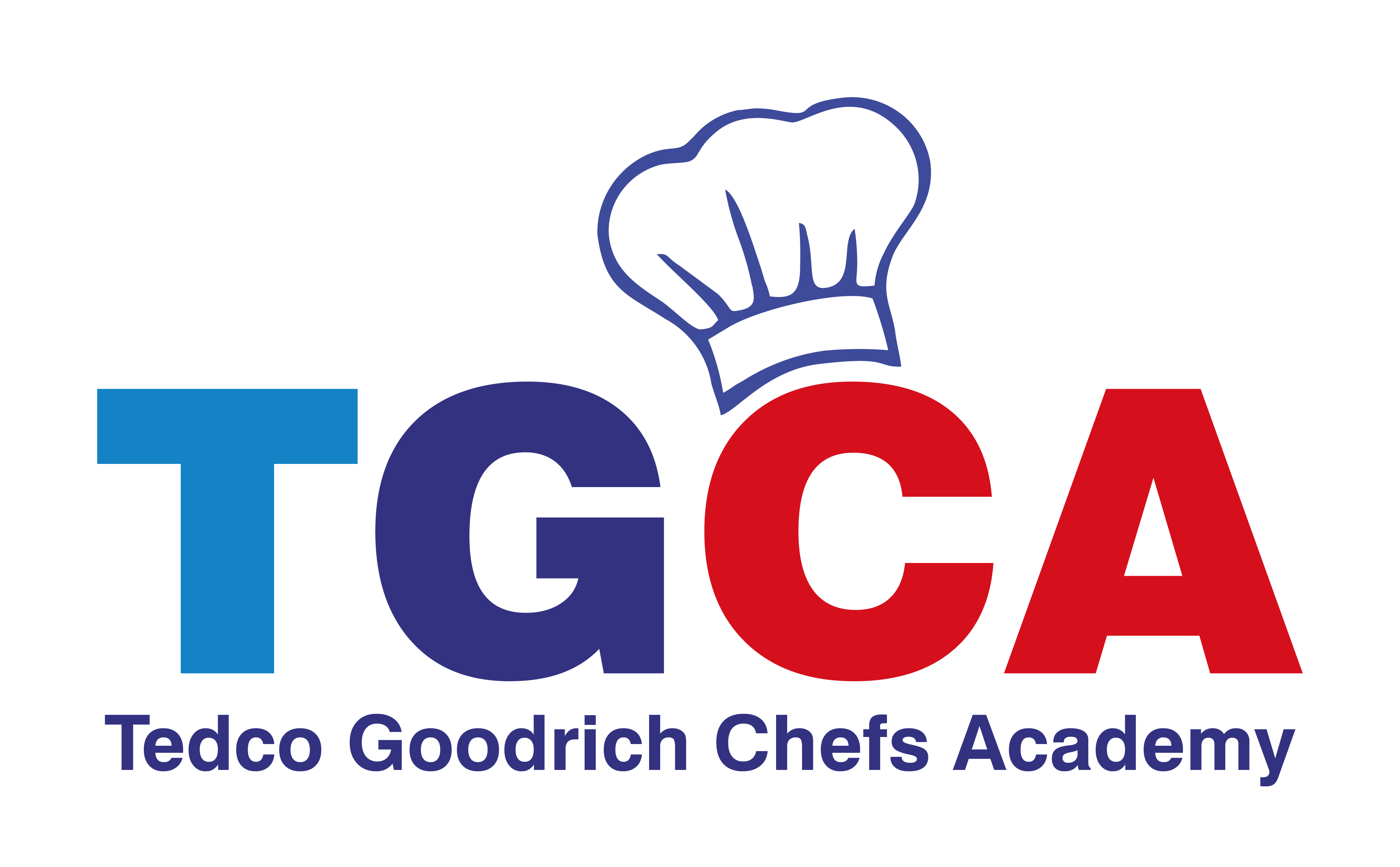

Starting a career after you complete culinary schools in india is considered a very crucial step. This is when you turn the passion you have for culinary arts into a rewarding profession. The culinary profession requires adaptability in a highly competitive environment. So, it is important to have the right strategy to get your dream job. This guide includes essential steps to help you develop a stellar resume and obtain practical experience by networking with industry experts while strengthening your abilities. Using this organized approach will help you search for jobs confidently while securing the culinary profession that best matches your professional goals.
Let us have a look at the essential steps outlined below that will help you realize your culinary aspirations.
Mastering the fundamentals of your culinary skill is a must if you wish to succeed in this industry. Ensure you refresh your skills from time to time as it boosts confidence and increases efficiency in the kitchen.
Before you plan to enter a professional kitchen, you must ensure that your foundational skills are top-notch. Most employers look for knife skills, which include proper chopping, filleting, and dicing, all of which should showcase your precision and speed. You must also have a thorough understanding of cooking methods like grilling, sauteing, roasting, and more, as it will help you handle various tasks with ease. Also, ensure to review food safety and hygiene as it ensures compliance with the industry standards to reduce the risk of contamination and keep the workspace clean.
You can stay confident in the kitchen with continuous practice and learning. Practice can include cooking various dishes from different cuisines as it helps experiment with flavours. You also need to perfect the plating techniques and take regular feedback from your peers and mentors. It also important to keep yourself updated on the industry trends as well as emerging culinary techniques as it will keep you ahead of competition.
Applicants who create compelling portfolios along with strong resumes will successfully distinguish themselves from other candidates seeking the same position. High-quality photos of your most remarkable dishes provide recruiters with tangible evidence of your professional skills through visual representations of your creativity and expertise.
Your resume should highlight professional experiences, such as international internships and culinary competitions, alongside part-time employment, as they demonstrate your strong dedication to the culinary field. List all the workplaces you worked at while describing your essential responsibilities and acquired skills in detail. Also, inclusion of participation in noteworthy culinary competitions demonstrates your ability to deliver high-performance results. Your resume becomes stronger by mentioning your work under famous chefs or top kitchens. This is because the hiring process focuses on job candidates who bring experience from multiple kitchen environments and the capability to adapt to different settings.
A powerful culinary portfolio extends beyond written components, and skill can be displayed through the visual presentation of your culinary art. The inclusion of top-quality photos of your signature dishes shows your abilities at food plating, your creative talents, and precise execution. Your portfolio should also showcase awards and media recognitions that you have achieved during your study or internships. A properly structured portfolio combining visual presentations and descriptive information enables you to stand out from other applicants by showcasing your culinary skills before any face-to-face interview.
Networking is quite important if you wish to secure a good job after you finish culinary school. When you stay connected with industry professionals, it not only opens doors to various internships or mentorships but can also help you land your dream job.
The network you establish at culinary school with teachers and classmates, as well as fellow alumni, will help you find new career possibilities. Teaching staff at culinary schools often have industry connections that lead to employment recommendations. Students seeking various career paths in the food industry also tend to exchange information about available positions. Being active in alumni groups and LinkedIn professional networks enables you to connect with your peer network through conversations and obtain mentorship from veterans in the field. Maintaining regular contacts enables you to stay updated on job openings and industry developments, which give you the edge you need to find your ideal culinary profession.
The combination of food events, workshops, and culinary expos offers valuable opportunities to network with influential chefs, restaurateurs, and industry figures. These events give members access to new skill programs, upcoming trends, and interaction possibilities with job-referring professionals. Hands-on workshops help you enhance your skills while displaying your dedication to lifelong learning through active participation. Also, the recruitment booths and networking sessions at culinary expos offer you the chance to meet potential employers personally. Basic conversations with experts attending these events can often result in job opportunities you did not expect.
Students who are looking for a job opportunity right after graduating from culinary school should follow a proactive approach. You can start by exploring the opportunities available in hotels, catering businesses, or restaurants. You can also use job portals, social media channels, etc, to keep yourself updated on new job openings.
You can also do a job search by exploring restaurants, local hotels, or even businesses that are into catering. Most such establishments prefer culinary graduates as they show extreme passion and are ready to learn. Introduce yourself to restaurants and hotels directly and explain your interest in current job openings. You can also consider submitting your resume to establishments even when they are not presently hiring as it might position you for future employment opportunities. Also, do not hesitate to start at entry level, as it demonstrates how dedicated you are to gaining essential industry knowledge.
Students can also use online job portals to learn about the latest job placements. Portals like LinkedIn or Indeed also have hospitality-specific postings and can be found quite easily. Ensure your resume, as well as your profile on these portals, is updated. Add your key skills, your achievements, and your experiences from time to time. You can also build connections by engaging with industry professionals and your alumni and by joining culinary job groups on social media platforms.
Securing a job after culinary school that meets your aspirations can be directly related to how well you excel in kitchen trials and interviews. Employers often look for candidates who are not just skilled with their knife but also have problem-solving skills and creativity. Start by preparing for commonly asked interview questions and complete your kitchen trials with confidence to stand out.
Job interviews at hotels or restaurants can often go beyond your culinary expertise. Make sure you search for some common questions and prepare thoughtful responses for the same. By answering those questions confidently, you can show how well you can manage your station and collaborate with your team. You can also use mock interviews for practice. Remember that a well-prepared interview will leave a positive impression on the employer and increase the chance of landing the job.
Kitchen trials cannot be taken lightly. Also called a stage, these trial shifts are often held to assess your skills when working in a real kitchen environment. Make sure you are dressed well and arrive at the location on time. You must also keep your workstation clean and organized. When you ask questions or follow the given instructions well, it not only shows your enthusiasm but also showcases how well you work under pressure. If there is an opportunity, you can utilize it to demonstrate your plating techniques or flavour pairings. Remember to be open to feedback and adapt to the situations faster, and you will leave a good impression on the interviewers.
The culinary industry is evolving every day, and students need to prepare themselves for continuous learning to ensure long-term success.
Culinary trends and techniques constantly evolve, so continuous learning is needed to achieve growth in your career. Taking specialized courses in pastry arts, international cuisine, food plating, or molecular gastronomy can certainly boost your resume. When you have a certification in food safety and hygiene, or even in advance knife skills, it will only make you more skilled.
When you have clear career goals, you stay motivated and will focus on your culinary journey. Create short-term goals which may include mastering of a cooking technique or getting a promotion etc. Your long-term goals can include starting your restaurant or getting an international opportunity. Evaluate your goals regularly and adjust as necessary to ensure steady growth. You can also use a journal or a vision board to track your progress or milestones.
Launching a successful culinary career after school requires dedication, continuous learning, and strategic planning. By refining your skills, building a strong resume, networking, and seeking the right opportunities, you can pave the way for long-term success. Stay passionate, keep learning, and embrace every experience to grow in the culinary industry.

Tedco
To improve your chances of getting a job after you finish your culinary school can be done by gaining experience via internships, refining your skills and by building a strong resume. You can also network with your teachers, industry professionals etc to find new opportunities.
Yes, having a portfolio with photos of your best dishes and a list of achievements will leave a strong impression on the interviewer. You can also create a portfolio specific to the job you are applying for to gain an edge over your competitors.
You can start as a line cook, commis chef, pastry assistant, or can also start by working in catering, hotels, and bakeries etc. You can also pick a job depending on your culinary specialization.
Networking is crucial! Staying in touch with chefs, mentors, and classmates can help you find job openings and improve your career growth opportunities. You can also build a network using social media platforms.
Yes, certifications in food safety, advanced techniques, or specialized cuisines can boost your resume and increase job prospects. The food industry is always evolving, and these certifications will help boost your career prospects.
Your resume must emphasize your unique strengths and specialties in the kitchen. You can highlight your education, internships, work experience, key skills, awards, and any specialized training that you might have received.
Get interview-ready by practicing key questions and honing your techniques for a hands-on kitchen assessment. You can also make use of mock interviews to get more confident.
Check job portals, restaurant websites, hotel career pages, social media groups, and attend culinary events for job leads. You can also search for restaurant and hotel job postings on LinkedIn and similar sites
While experience helps, many employers hire fresh graduates if they have strong skills, passion, and a willingness to learn.
Stay patient, keep improving your skills, take freelance or part-time roles, and continue applying until you land the right opportunity.
Click one of our representatives below to chat on WhatsApp or send us an email to
info@tedcoeducation.com
Counselor
Bakery and Pastry Courses
Counselor
Culinary Arts Courses
Click one of our representatives below to chat on WhatsApp or send us an email to
info@tedcoeducation.com
Counselor
Bakery and Pastry Courses
Counselor
Culinary Arts Courses